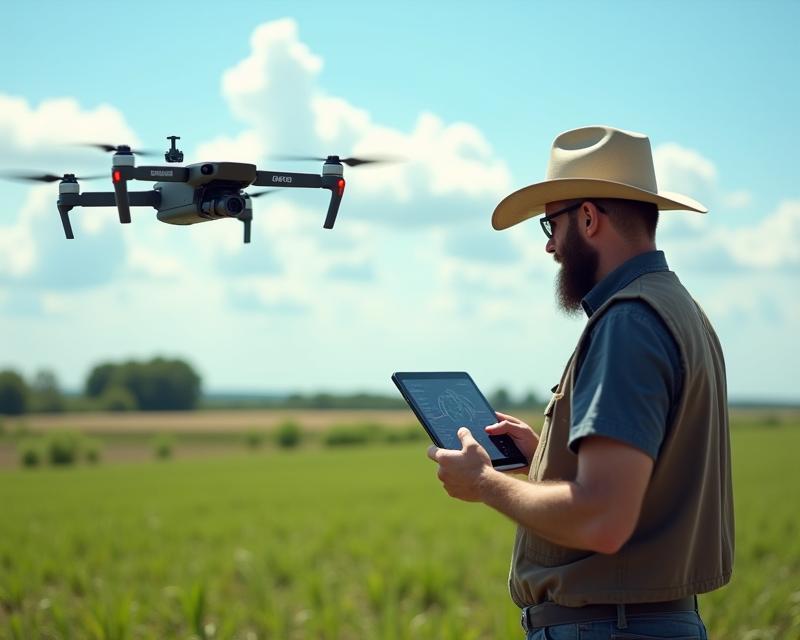Drones & Regulations: Navigating Global Rules for Farmers
Publish in Sustainable Farming el 21/07/2025 01:04
Drones & Regulations: Navigating Global Rules for Farmers
Drones are rapidly changing the game for farmers and ranchers! From crop monitoring to livestock management, these aerial helpers offer incredible benefits. But before you take to the skies, it's crucial to understand the rules. Drone regulations vary significantly from country to country, and even within regions of a single country. This article breaks down some of the key differences and what they mean for you.

A World of Different Rules
Imagine trying to farm in one country and then suddenly facing completely different drone rules when you travel or export your products. It's a real concern! Here's a quick look at how regulations differ:
- United States: The FAA (Federal Aviation Administration) regulates drones based on their weight and intended use. You'll likely need to register your drone and pass a knowledge test for commercial operations. Visual Line of Sight (VLOS) is generally required, though waivers are available.
- European Union: The EU has a harmonized approach, classifying drones based on risk. Registration is required, and operators need to comply with rules regarding VLOS, altitude, and operating near people. Member states can have additional national rules.
- Canada: Transport Canada regulates drones, requiring registration and adherence to rules about altitude, VLOS, and operating near airports. A pilot certificate may be needed for certain operations.
- Australia: CASA (Civil Aviation Safety Authority) regulates drones with registration and operational requirements. VLOS is generally required, but there are specific rules for agricultural use.
Why Does This Matter to You?
Understanding these regulations is vital for several reasons. First, non-compliance can result in hefty fines and legal trouble. Second, it impacts how you can use drones on your farm. For example, some countries might restrict drone flights over specific crops or livestock. Third, if you plan to export your products, you need to ensure your farming practices align with the regulations of the importing country. Staying informed avoids costly delays and potential trade barriers.
Staying Compliant: Key Takeaways
Here are some essential steps to ensure you're operating legally:
- Register your drone with the relevant aviation authority in your country.
- Understand the VLOS rules and whether you need a waiver.
- Check altitude restrictions and avoid flying near airports or sensitive areas.
- Be aware of any specific regulations related to agricultural use of drones.
- Stay updated on changes to drone regulations – they are constantly evolving!
Resources like the FAA website, Transport Canada, CASA, and EU regulations provide detailed information. Don't hesitate to consult with aviation professionals or legal experts if you have questions. By navigating these regulatory challenges, you can unlock the full potential of drones to improve your farming operations and boost your productivity. Happy flying (responsibly)!





